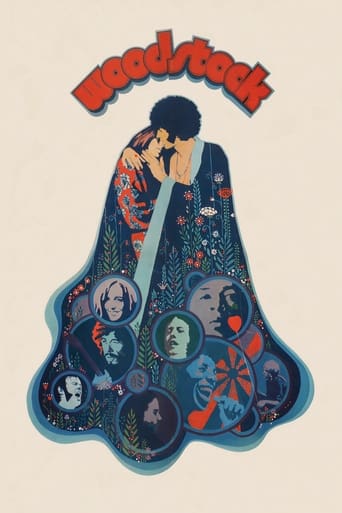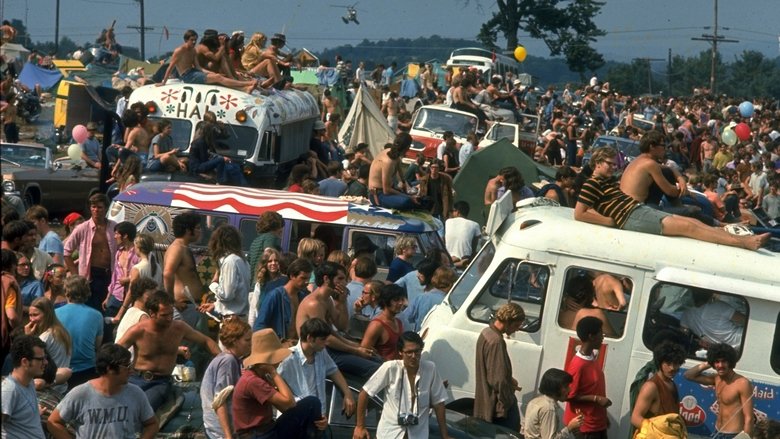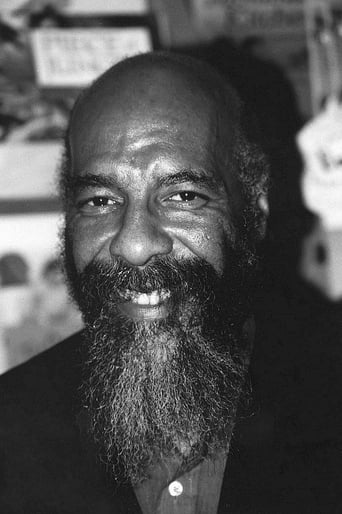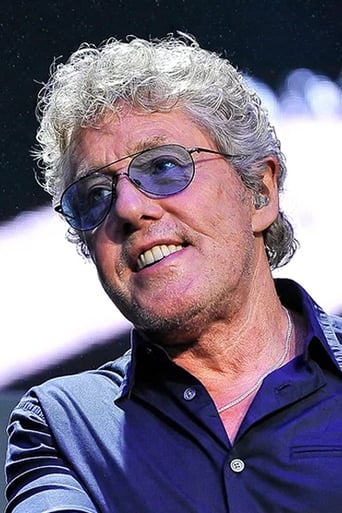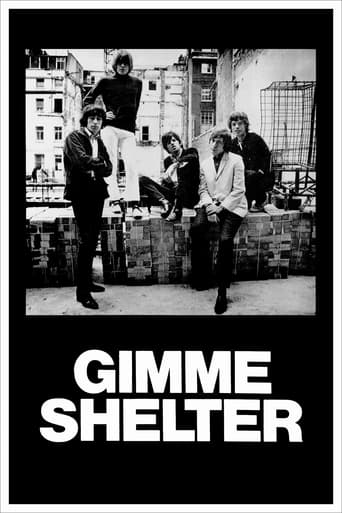Woodstock (1970)
An intimate look at the Woodstock Music & Art Festival held in Bethel, NY in 1969, from preparation through cleanup, with historic access to insiders, blistering concert footage, and portraits of the concertgoers; negative and positive aspects are shown, from drug use by performers to naked fans sliding in the mud, from the collapse of the fences by the unexpected hordes to the surreal arrival of National Guard helicopters with food and medical assistance for the impromptu city of 500,000.
Watch Trailer
Free Trial Channels
Cast
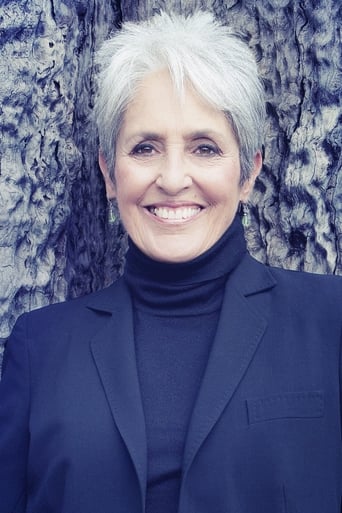


Similar titles
Reviews
Perfectly adorable
People are voting emotionally.
Just perfect...
Worth seeing just to witness how winsome it is.
Approaching the age of 35, I wonder what exactly defines my generation, what am I going to excitedly tell my children when they will ask me how it felt to grow up in the 80's or 90's, when years started with 19-. Sure, I can describe the shapes of videocassettes, I can also hum a few tunes of my childhood or hit songs from the teenage years, but again, what does define my generation?They had musical and spiritual communion in "Woodstock" and what do we have: bum-bum contests in Cancun? Give me a break (and not a spring one)! Watching "Woodstock" made me realize the extent of what I missed by being born too many decades later, I missed a youth, one that really captured values youth stood for: peace, unity and community, fun, innocence and love. This sounds corny but imagine Woodstock happening today: everyone would see it live on TV or Youtube, stars would come with armies of bodyguards, there wouldn't be one but dozens of helicopters buzzing around the area, imagine the security guards, the anti-terrorist controls, imagine all the i phones being raised to the air. Woodstock wouldn't be Woodstock, in fact, we wouldn't even have a Woodstock.The Woodstock Nation people, as they called themselves, didn't even know it would be filmed; they came, listened and lived the music, experienced to the bone whatever this new counterculture meant. We remember colorful details such as skin-dipping, naked girls dancing in the mud after the rain or naturally, pot-smoking, but from the standpoint of these young baby-boomers, it was the experience of a lifetime, one their parents could never understand, a moment of communion that would have at least existed for three days, for peace and music, like the subtitle says. They didn't know they were filmed but they knew they were part of a historical moment, no doubt.And Michael Hadleigh had a hunch that this wasn't going to be any rock concert, with sixteen cameras, an editor and a young assistant named Martin Scorsese (and how appropriate that it had to be Marty's, of all the filmmaking debuts), they went to that deserted farm of upstate New York and started shooting. The film opens with green lands, far from the crowded visions rooted in pop-culture, local townspeople commenting the incredible sights, it feels like an invasion, too many youngsters, but the tone is surprisingly easy-going, it seems that for once, peace would be more than a slogan. And it happened, people came for the music and apart from the rain, nothing ever interrupted the festival, the concert was free, in every possible way.Freedom, indeed, that was even the first song to open the concert, by Richie Havens. Look at him, he struggles with his guitar, he wears shoe-sandals, he interrupts his song, this is not a 'star', this is a singer with all the noble and spiritual craftsmanship the word carries.I said Woodstock wouldn't be possible today but even if we dared to spend three days without our precious electronic devices, we don't have artists like Havens. I'm not even sure we had them ten years ago, listening to the voice of all these J-named singers: Joan Baez, Joe Cocker, Janis Joplin and Jimi Hendrix' electrifying rendition of the national anthem sent shivers down my spine, same with The Who, Santana, and even the names I didn't know about before watching "Woodstock". Every single one of them proved me that there was just something incomparable about music between the late 60's and early 70's.And the epic documentary finds the perfect balances between musical sequences and shots from the crowds when participants or cops give their two cents. One toilet-cleaner does it with a smile, he has a son in the festival and another in Vietnam, two visions of American, everyone has a saying about the event, sometimes, just a smile, a wink, say no more, there's the firm awareness that it is a significant moment of American history, one that became past when Hendrix and Joplin died in 1970, followed by Jim Morrison. Nixon resigned in 1974, and in Reagan's 80's, Woodstock would become a parenthesis not to be forgotten though.I felt young again watching the documentary and listening to these songs, it was edited in such a way, with all the split screens, that I felt I was there, there was something really intimate as you could mix the experience with your own memories, a teen in the film is probably older than my father but for me, he was a kid. I wonder how many of them are still alive, I only hope they've watched the film again and realized that they were privileged people, they might not have had the adulthood they wished for but boy, they had the youth.Some generations can't afford this luxury, I don't think anything would defines the 80's generation, maybe it's a one-in-a-century phenomenon, but I wish I could feel part of something. Maybe this feeling of belonging to a community was integral to the success of Woodstock, but we also have communities right now, except that they are self-centered and antagonistic, there was an IMDb community but remember, they removed the boards, so I don't think there would ever be a haven of peace like Woodstock in August 1969, it was too good to be true. But it was nice while it lasted.Now, I don't think the world was a more beautiful place by then, at the time of the events, Hollywood was stricken by the savage assassinations induced by Charles Manson and people died in Vietnam, and we don't live in a world devoid of beauty either, but "Woodstock" immortalized an era in one film and defined a generation.It all comes down to one thing, if anyone wants to know what was so great about the late 60's, watching "Woodstock" is enough.
Documentaries about musical events do not really lend themselves to a review. However Woodstock was just as much a social event as a concert. For several days the fields changed into a temporary city. It is interesting to see how Michael Wadleigh displays and interprets the attitude of the crowd. He interviews the visitors, and asks them about their motives to be there. Most of them are barely grown people. Many simply follow the flow, but for others the festival is an opportunity to increase their wisdom of life. They arrive as groups and communes, and try to learn from each others experiences. There are spiritual meetings. There is recreation and fun, like the mud slides in the rain. But there are also social experiments, like nude swimming and even public drug (ab)use. They blow to make other people interesting. They may have read about the evils of drugs, and gave up reading. The cast of singers and song groups looks impressive. But to be fair, I did not like their music then, and in the film it looks truly poor and miserable. In many cases the appearance consists of screaming and physical convulsions. Today such a performance would not attract such an enormous crowd. It takes the drummers a minute to notice that their band has stopped playing. Joke: what is the difference between an electric guitar and a chainsaw? The grip. Probably it makes more sense to interpret the festival as a demonstration against war and violence. America was in the grip of the civil rights movement. Several charismatic leaders had been murdered. And most of all, there was the appalling war in Vietnam, which threatened the future of the male youth. On stage Joan Baez tells about the objection to military service of her boyfriend. If your life expectancy is just a few years, there is some cause for screaming and wild social experiments. The right to bear arms is slightly less ludicrous than the right to arm bears. By the way, why do soldier look so tired on 1 April? Because they just had a 31-day March. Actually Woodstock was a sad event. And Wadleigh must get the credit for managing to convey this message - which is a recommendation. Don't hesitate to leave a comment. I love it.
This four DVD collection is essential: the director's cut of the film, one DVD of extra music and one DVD of interviews. This last DVD is interesting for the technical details and all the material conditions. It is anecdotal and somewhere it misses the essential point: the music – as a representative of the world – of the twentieth century has been through a revolution and Woodstock is the first demonstration (like in science and mathematics) of the total jump of the whites in America, slightly after the British and the Europeans, into endorsing that new music. To find what is so original in that new music is not that difficult today if we have followed the vast research in the whole world about music all along human history. Listen to the DVDs or to the CDs and you will find out that this music has one characteristic that unifies all the styles or nearly: it is polyrhythmic. It is so obvious that discussing the point is pointless. Back in Europe and in the 20s and 30s there had been some attempts in "classical" or "symphonic" music to produce polyrhythmia but it had failed to conquer the vast popular public. Popular music was entirely locked up in good old songs and good old monorhythmia. What is polyrhythmia that Mr. Word's Dictionary refuses? It is the fact that a superficial and traditional rhythmic line, generally binary or ternary, covers up and is articulated upon a far faster rhythmic line that can run in multiples of two or three. That faster rhythm can be carried by the modern drums (where do they come from?) or contained in the singing or in the melodious line of one particular instrument, the bass or the lead guitar used as a rhythmic accompaniment. That was invented in the United States of America and was the consequence of a social, political and geo-demographic phenomenon known as the slave trade and slavery. In Africa, music is originally polyrhythmic and the instruments they used are drums and percussions of many very different types from the tam-tam to the water drum. The slower rhythm is the one to which most people dance and the faster rhythm is magic in a way since it can lead to a trance, to vodun (or voodoo) illumination, with or without the help of alcohol or other substances. The Blacks arrived in America and kept their rhythm, their music and used it all the time in the fields. That will produce black music whose first fully developed form will be jazz. Jazz will become a hit thanks to the radio but jazz requires a new instrument, the modern drums of our bands. They more or less took all the instruments from the European tradition and just associated them so that one person could use both hands and both feet to create a rhythmic universe that was by definition polyrhythmic. From Jazz to rock and roll and modern popular music there is only about twenty to thirty years. The radio will make it popular everywhere in the world, would I say, and then television added its own two bits. The whites learned it and started producing their own, the British being ahead with the first bands that managed to move vast audiences and to spread everywhere in the world. The Americans were just going to follow that road. Woodstock is the first time in American history that such a mass of essentially white people gathered to listen to that kind of music, white, black or latino musicians together. That music is polyrhythmic and that creates a mental way of thinking that is interesting. The brain can naturally think and work along several lines at the same time, but if you make it a requirement, a style, a way of thinking it clearly implies people who are different can dance together, can mix and be together. That music is mentally, psychologically, and even psychically multiple and if two, three or four rhythms can live together why should we segregate among people any group as opposed to another, even any gender as opposed to the others. Equality in total diversity, guaranteed diversity in the very recognition of the differences of the others and the particularity of myself as not opposed, not compared but simply contrasted to the others. The world was becoming a symphony of all kinds of things and in the human sphere anything that appeared as a limit was to be gotten rid of. Even grammar for some was fascist. Good riddance. Every single particularity I decided for myself or I assume in myself became a choice and implied that I was myself and unique and that all other human beings around me were themselves and unique and that we could all live in total peace and fraternity or brotherhood or sisterhood or sorority by assuming all these differences and by letting them come to the surface of our life, to the conscience of our brains, to the reality of our existence. The First amendment became the central axle of this new world perfectly in phase and harmony with that polyrhythmic music I am talking of. In other words this polyrhythmic vision is the direct production and embodiment of that first amendment. It became the music of the people for the people by the people. We were leaving Gettysburg behind in history and making it into our flag, banner, motto, ethics. Are we conscious of what I am explaining? Of course not, otherwise I would not have to explain all that. So celebrate Woodstock as the turning point in human history that would never have been possible without the bringing of millions of black Africans to America, even if that was a crime against humanity, and without the globalization that started as soon as Auschwitz was liberated, quite a few years ago.Dr Jacques COULARDEAU, University Paris 1 Pantheon Sorbonne, University Paris 8 Saint Denis, University Paris 12 Créteil, CEGID
This is one of those movies that you are always told "you have to watch". Woodstock was an event that has become iconic for what was supposed to have been the best of the 60's generation (though to be honest, i think the 60's generation is best summed up in the final scenes of the movie when the clean up crews are at work picking up after all of the spoiled white kids who left their crap laying all over for others to get).Nonetheless, this is a much more enjoyable film than other 60's standards, like Easy Rider (the most boring film I have ever seen) and Dr Strangelove (way over rated).As a piece of history, this movie is phenomenal. It is well edited, well paced, and thoroughly generous in its efforts to capture the work and efforts required to put such an event together (the building of the sets, medical care, feeding the masses (where's a messiah when you need one, right?) and the cleaning of the portajohns. I truly enjoyed all of the scenes with the organizers, and had to laugh at some of the reporter's questions.Musically, it is a hodgepodge, very hit and miss. This is why i give it a 7 out of 10. I can't understand the musical choices, though possibly, the passage of time has made our "favorites" decision for us rather than our being there. Who knows? Anyway - here's a selection of my favorites - Richie Havens was incredible. Santana was phenomenal. Joe Cocker was great (though his back up singer (the guy) left a lot to be desired). Joe McDonald was great and funny - had the audience eating out of his hand. Arlo was great.Sly was boring. the producer chose a terrible song from Joplin and it is a shame, as she is one of my favorites. Sha Na Na - have no idea why? Wish the Dead had been included, but from their perspective, they always say it was a terrible performance (though Jerry is featured in the beginning). John Sebastian (why did he bother?).I'm sure I am leaving some things out - but let me just say - Scorsese did a fantastic job editing the many many hours of footage together. One of his greatest achievements. what i will say though is that i agree with Ebert's review - when he pointed out that the music at Monterrey was better (it was 2 years earlier).Nonetheless - it is a movie truly worth watching - and i would say that the director's edition is enjoyable - can't say whether the short version is better than the long version - but i can say I enjoyed the directors cut.

